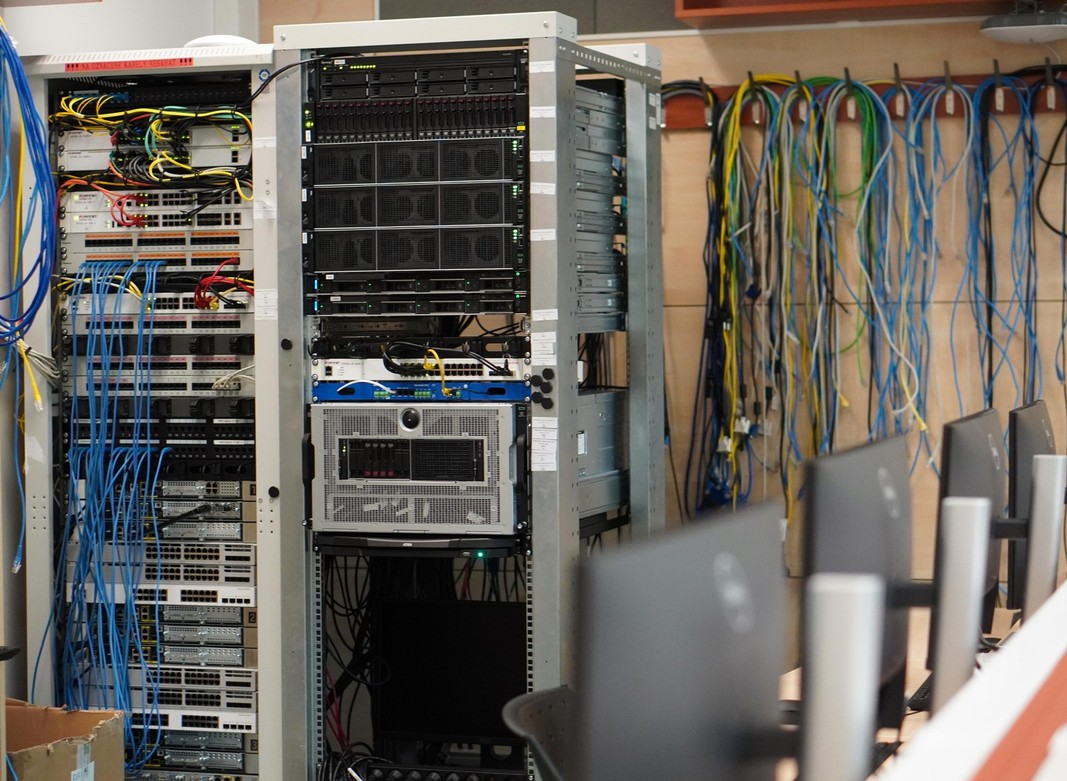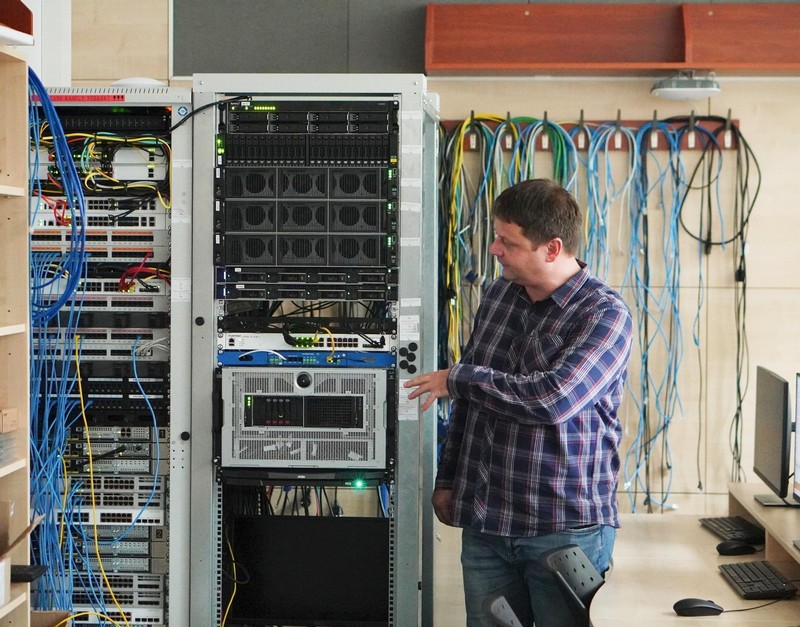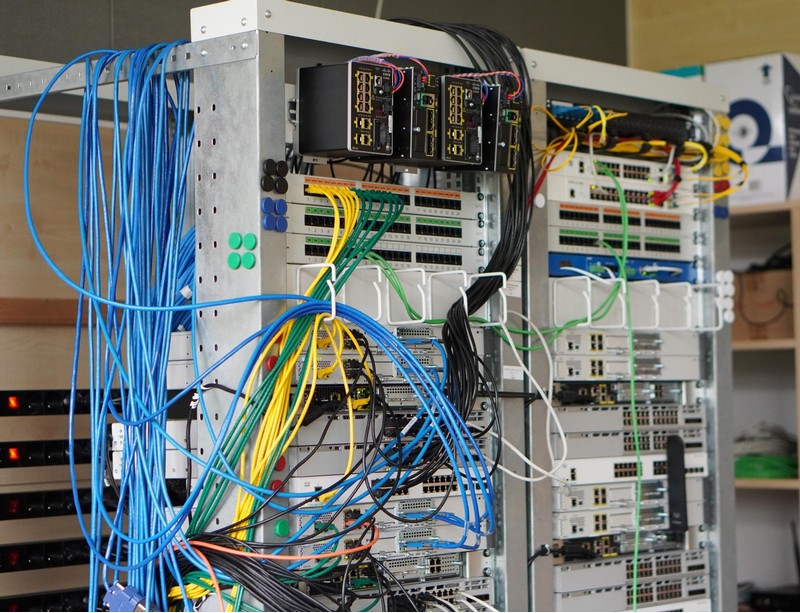New Cybersecurity Laboratories Established at the Faculty of Informatics and Management UHK

The Faculty of Informatics and Management UHK has unveiled newly equipped cybersecurity laboratories, marking a major step forward in both education and research. The upgraded facilities offer cutting-edge infrastructure for advanced teaching, hands-on training, and innovative research in cybersecurity, data science, and artificial intelligence, thanks to EU funding.
Thanks to a project under the National Recovery Plan program, funded by the European Union, the faculty has significantly updated, expanded, and enriched its informatics curriculum over the past two years. “Individual courses and classes are designed to be interconnected. This means they either build on each other or complement one another across various informatics study programs. One colleague often introduces a concept, and another teacher builds on it in a different context. This creates a strong foundation, especially from the cybersecurity perspective,” says Assoc. Prof. Josef Horálek from the Department of Information Technologies.
The faculty has invested time, energy, and considerable financial resources in the innovation of both courses and the cybersecurity labs themselves. The total cost of rebuilding and upgrading the labs amounted to 17 million CZK. “The new equipment includes modern network components, measuring instruments, powerful servers for complex simulations and computations, workstations, as well as various sensors and mobile devices,” explains Assoc. Prof. Vladimír Soběslav, who has overseen the lab facilities for over 15 years and was responsible for their modernization.

The lab also features a cyber range that simulates attacks and defensive strategies in a secure environment. Thanks to virtualization and cloud technologies, students and researchers can test a wide range of scenarios – from cyberattacks to complex research projects. The lab’s network is completely separated from the university’s network for security reasons. “Our new program Information and Network Security integrates educational programs from major IT companies such as CISCO and Fortinet. This enables students to gain valuable hands-on experience and provides them with a significant competitive advantage in the job market,” adds Assoc. Prof. Vladimír Soběslav.
The newly equipped labs will greatly facilitate work on various projects. One of the current faculty projects focuses on generating synthetic data from network traffic to enhance cybersecurity, specifically intrusion detection systems. “We’re also working on integrating large language models into document management systems. Features now commonly known from tools like ChatGPT will also be usable with private data while respecting individual users’ access rights,” says Assoc. Prof. Pavel Čech.
As part of their coursework, students can physically try out what they’ve learned in class in the labs. They can also set up their infrastructure at the faculty and later connect to the lab remotely from home.

“The newly established lab represents a major leap forward in local testing of large language models, known as generative AI. It provides us with the infrastructure and technical resources for in-depth research and experimentation with the latest models, significantly expanding opportunities for both our own research and scientific collaboration. Thanks to this facility, we can test models under controlled conditions on local servers and develop optimized applications using these models. This allows us to push the boundaries of what generative AI can achieve. The new lab offers not only an environment for experimentation but also the ability to respond quickly to current challenges and apply new findings in practice,” concludes Ing. Dominik Palla from the Department of Informatics and Quantitative Methods, who is an active user of the lab.


